Welcome to the Karamoja Library. The library contains a wide selection of technical reports, studies, evaluations and other materials on Karamoja, produced by various organizations and authors. Please use the search below to browse the library.
Karamoja Library
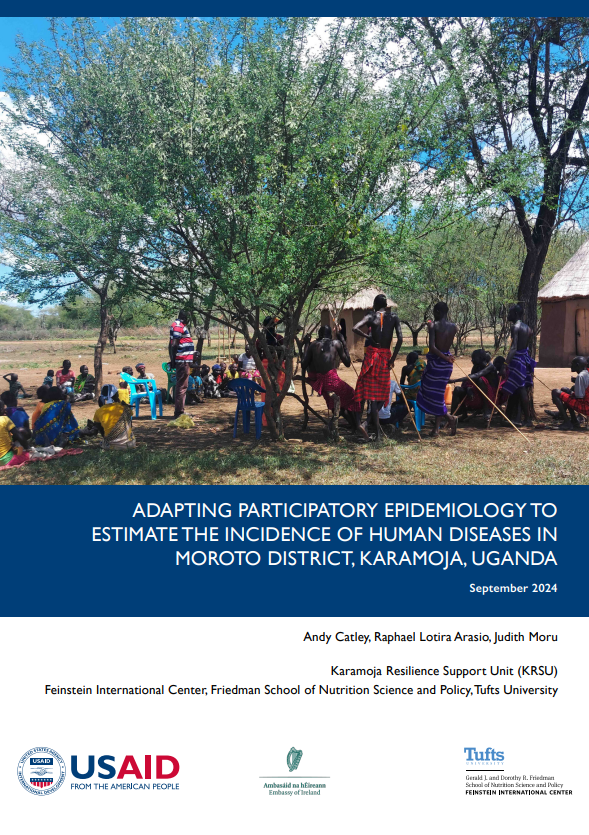
Adapting participatory epidemiology to estimate the incidence of human diseases in Moroto District, Karamoja, Uganda
In 2018, women in Amudat, Moroto, and Kotido 8uhbDistricts of Karamoja produced detailed analyses of the seasonality and causes of child malnutrition, including monthly patterns of malnutrition, food availability, workload, malaria, and diarrhoea. This work involved the systematic use of participatory epidemiology (PE) methods such as monthly calendars and causal diagrams that were adapted to the Karamoja context.
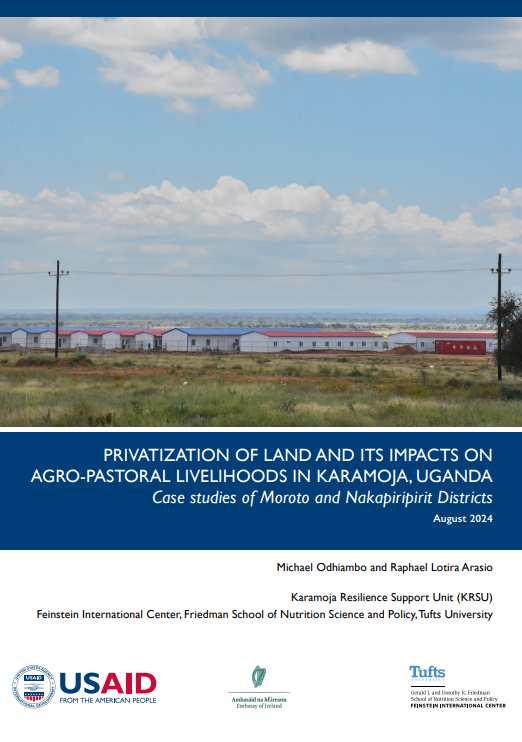
Privatization of Land and its Impacts on Agro-Pastoral Livelihoods in Karamoja, Uganda: Case studies of Moroto and Nakapiripirit Districts
This report presents the findings of a review of land issues in Karamoja, with a particular focus on trends in privatization of communal lands and its impacts on agro-pastoral livelihoods.
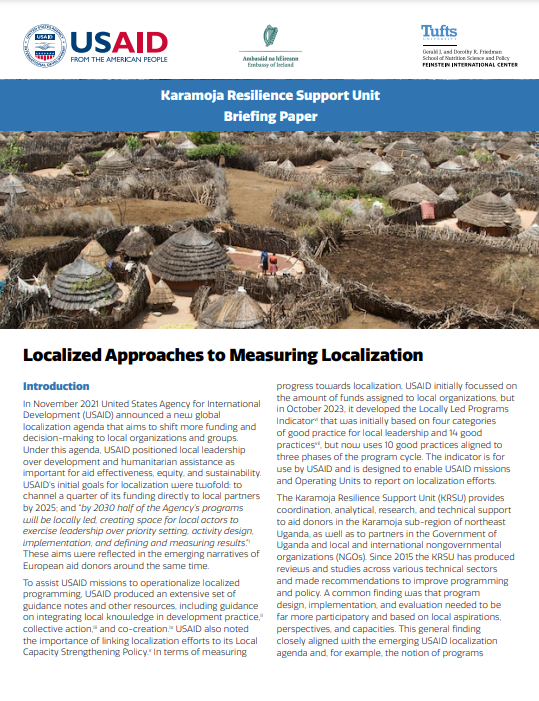
Localized Approaches to Measuring Localization
In November 2021 United States Agency for International Development (USAID) announced a new global localization agenda that aims to shift more funding and decision-making to local organizations and groups. Under this agenda, USAID positioned local leadership over development and humanitarian assistance as important for aid effectiveness, equity, and sustainability.
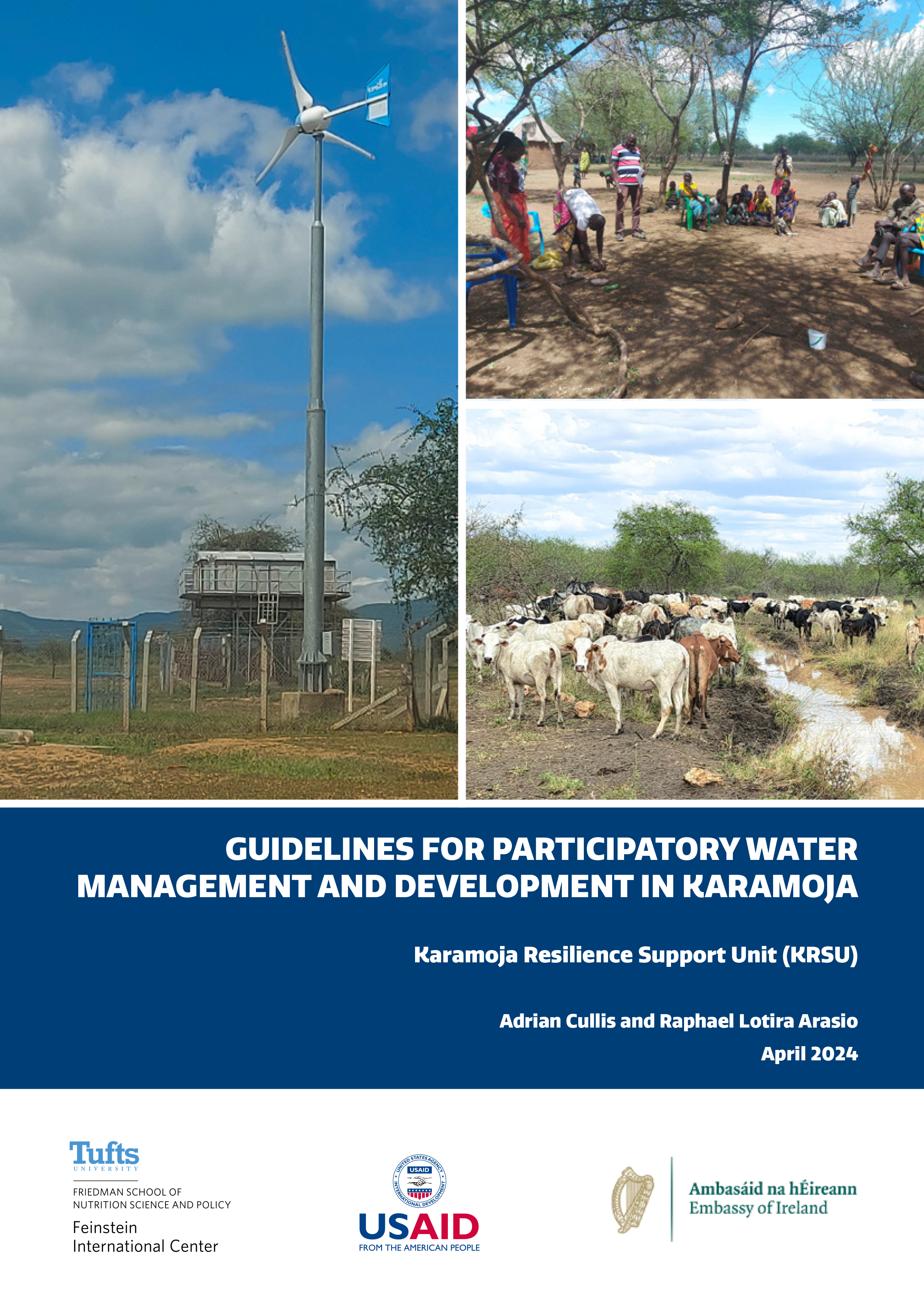
Guidelines for Participatory Water Management and Development in Karamoja
Water resources support key sectors of the economy namely: hydropower generation, agriculture, fisheries, domestic water supply, industry and navigation among others. However, the efficiency and sustainability of water utilization has recently been a concern in Uganda mainly due to inadequate sectoral collaboration in planning and implementation, increasing frequency of floods and droughts, environmental degradation and pollution of water resources.
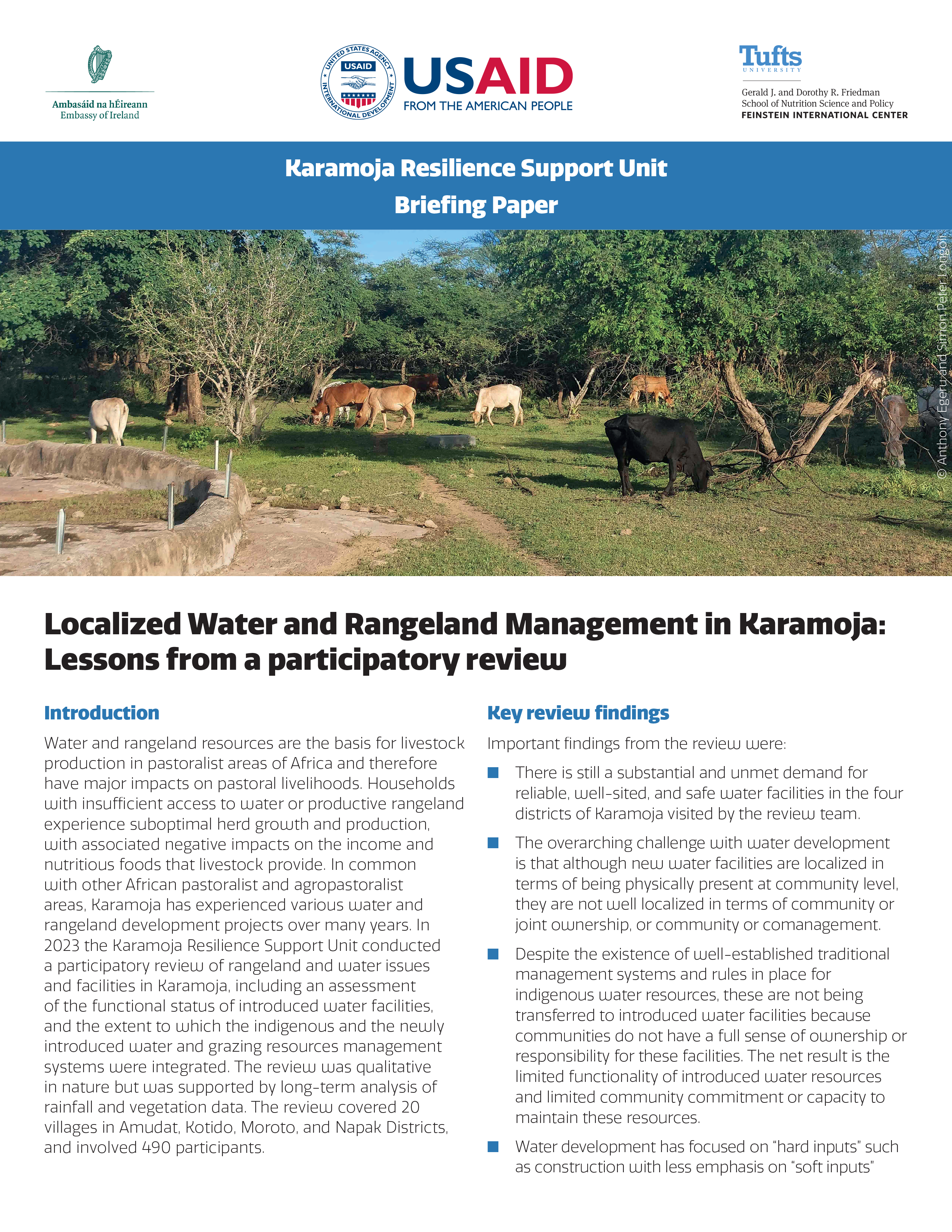
Localized Water and Rangeland Management in Karamoja: Lessons from a participatory review
Water and rangeland resources are the basis for livestock production in pastoralist areas of Africa and therefore have major impacts on pastoral livelihoods. Households with insufficient access to water or productive rangeland experience suboptimal herd growth and production, with associated negative impacts on the income and nutritious foods that livestock provide. In common with other African pastoralist and agropastoralist areas,
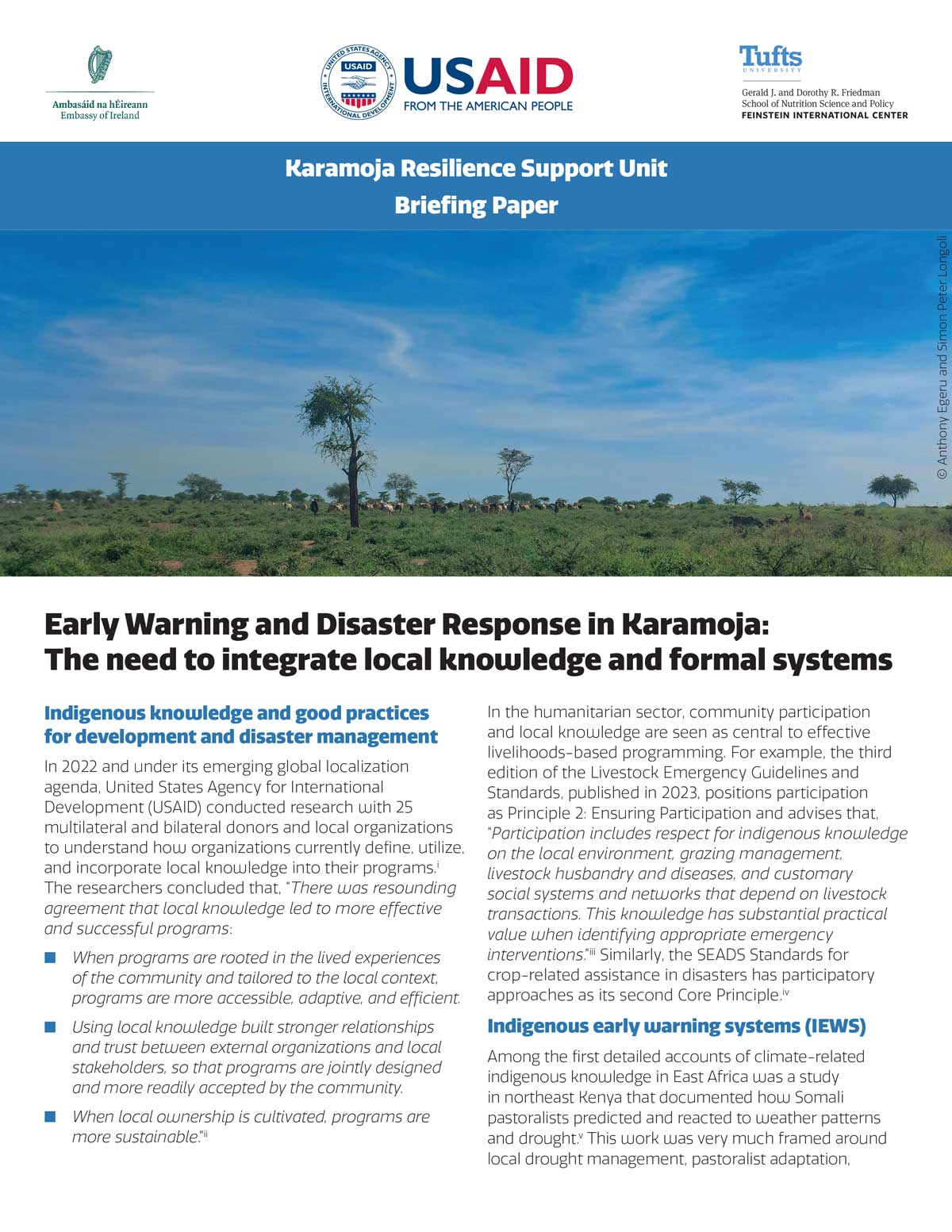
Early Warning and Disaster Response in Karamoja: The need to integrate local knowledge and formal systems
A genuine localized approach to early warning should shift the approach to more of a partnership and coacceptance of the strengths and weaknesses of indigenous and conventional systems.
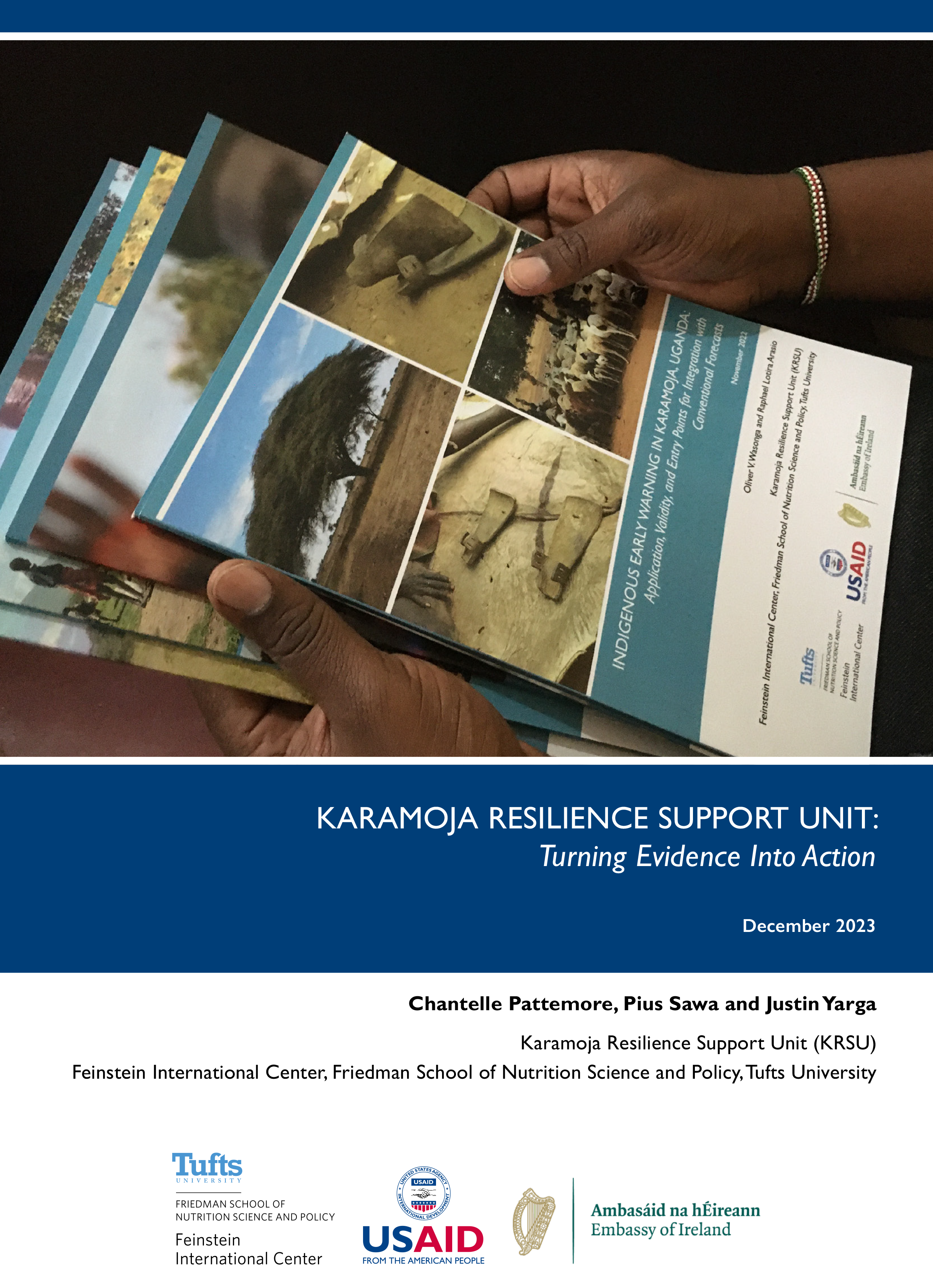
KARAMOJA RESILIENCE SUPPORT UNIT: Turning Evidence Into Action
To gauge understanding of how KRSU’s work benefits and is utilized in Karamoja, a rapid review was conducted in November and December 2023. The review involved face-to-face interviews with a number of the organization’s partners – including non-governmental organizations (NGOs), universities, academics, and donors.
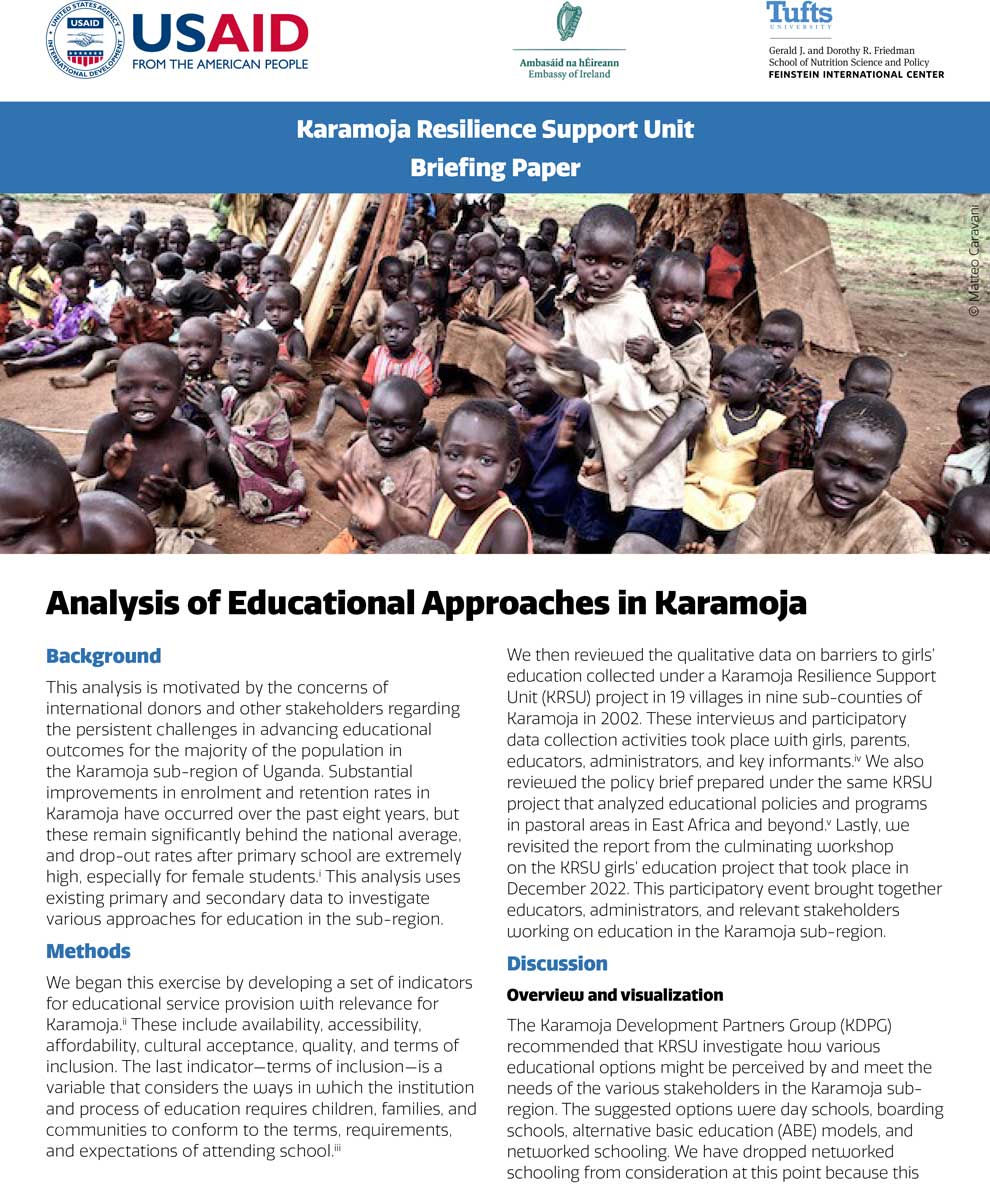
Analysis of Educational Approaches in Karamoja
This analysis is motivated by the concerns of international donors and other stakeholders regarding the persistent challenges in advancing educational outcomes for the majority of the population in the Karamoja sub-region of Uganda. Substantial improvements in enrolment and retention rates in Karamoja have occurred over the past eight years, but these remain significantly behind the national average, and drop-out rates after primary school are extremely high, especially for female students.i This analysis uses existing primary and secondary data to investigate various approaches for education in the sub-region.
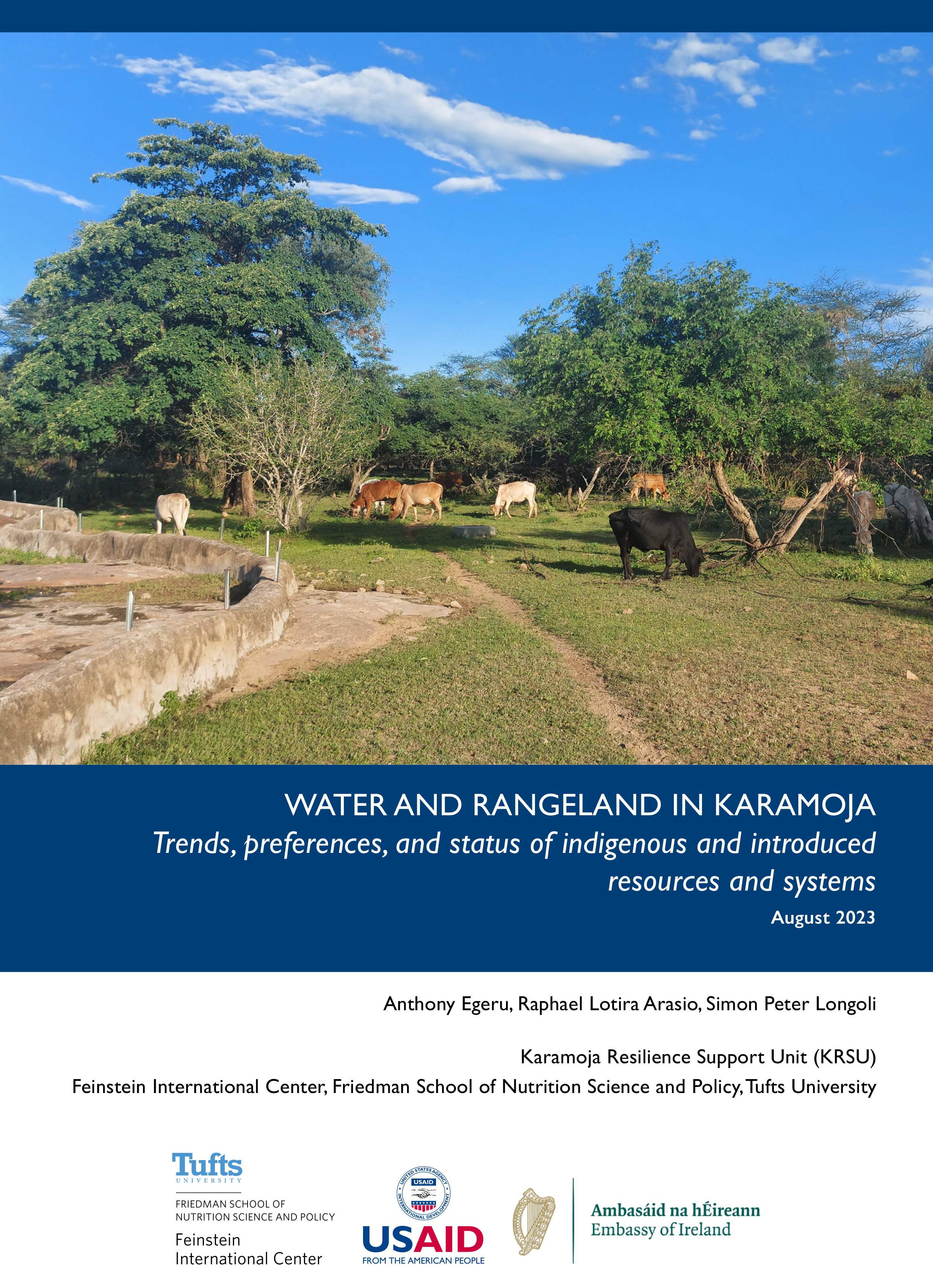
WATER AND RANGELAND IN KARAMOJA
Water and rangeland resources are the basis for livestock production in pastoralist areas of Africa and therefore have major impacts on pastoral livelihoods. Households with insufficient access to water or productive rangeland experience suboptimal herd growth and production, with associated negative impacts on the income and nutritious foods that livestock provide.
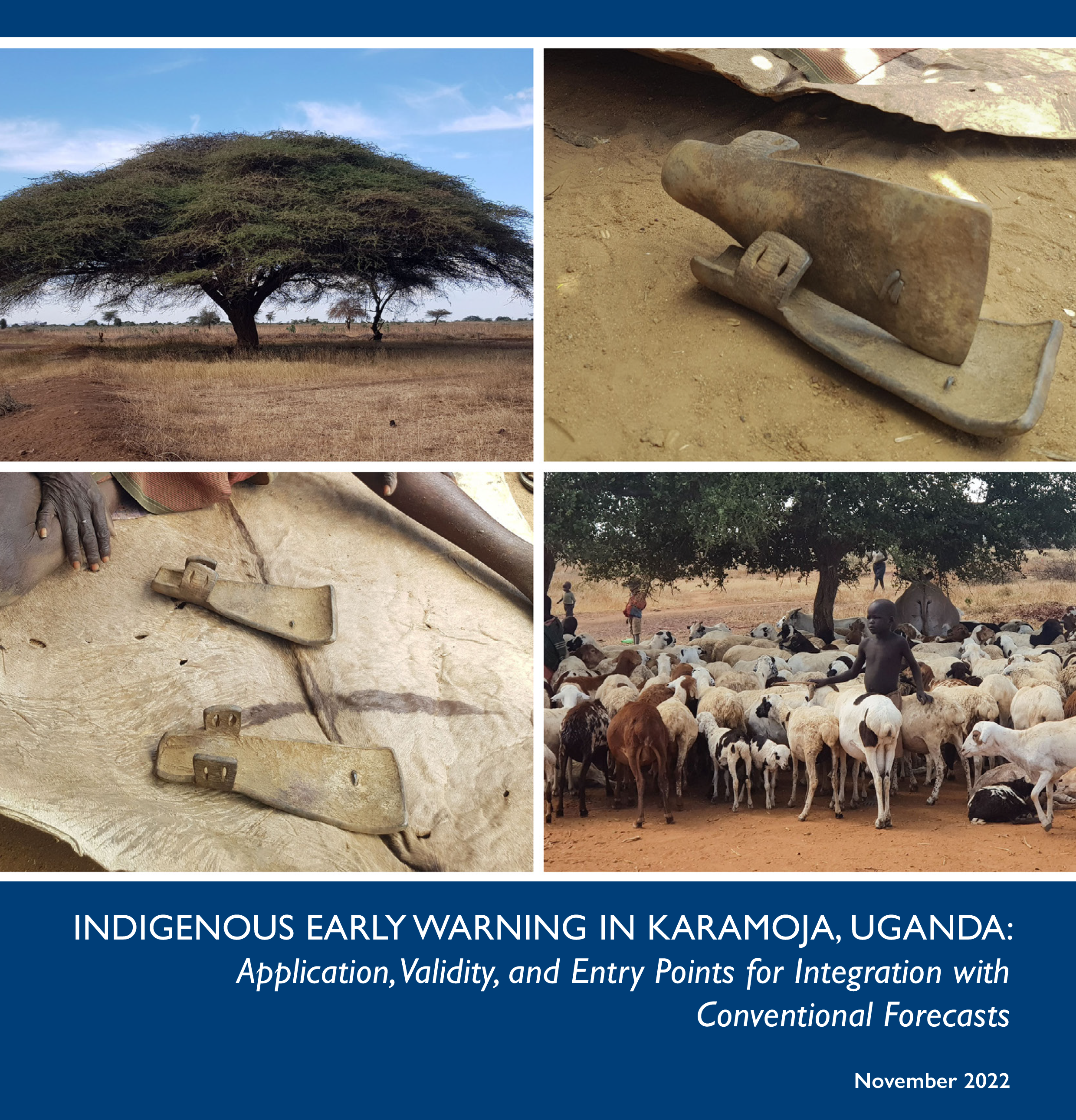
INDIGENOUS EARLY WARNING IN KARAMOJA, UGANDA
An effective early warning system (EWS) is a prerequisite for timely response to avert and mitigate the impacts of disasters that affect pastoralist and agro-pastoralist communities. Whereas there exist various forms of EWS in Uganda, the main concerns have been whether the early warning information is timely, accurate, accessible, and elicits early action. These questions point at inefficiencies in the conventional EWS in the country and the importance of the indigenous early warning system (IEWS) used by rural communities. These indigenous systems are especially important where conventional early warning information is inaccessible or coarse and therefore not suitable for guiding location-specific decisions.
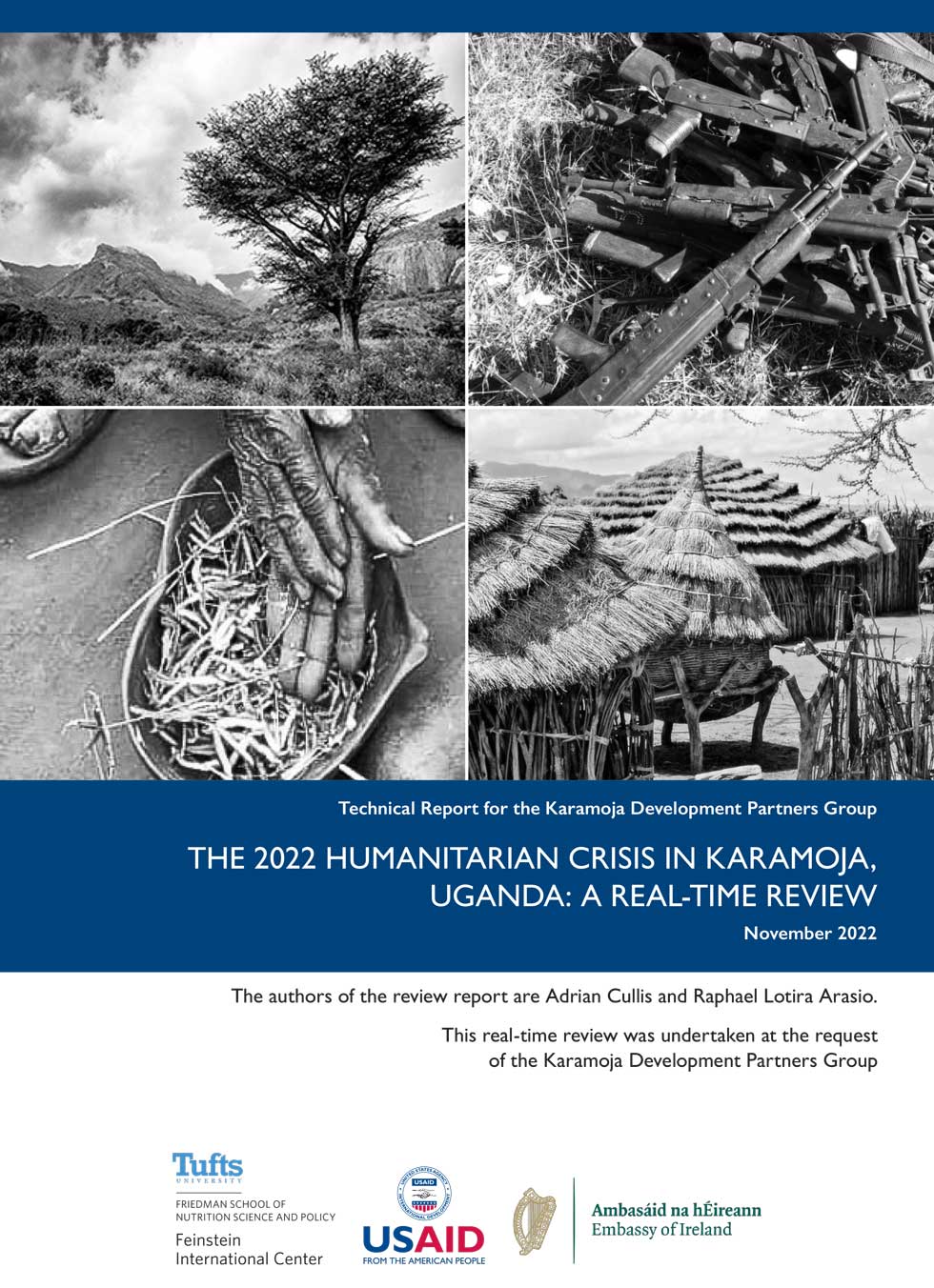
The 2022 Humanitarian Crisis in Karamoja, Uganda: A real-time review
This real-time review aims to document the events that led to Karamoja’s hunger crisis in 2022, the reporting of the worsening situation by early warning systems, and the responses of the Government of Uganda and the international aid community. The review took place from the September 27–October 21, 2022.
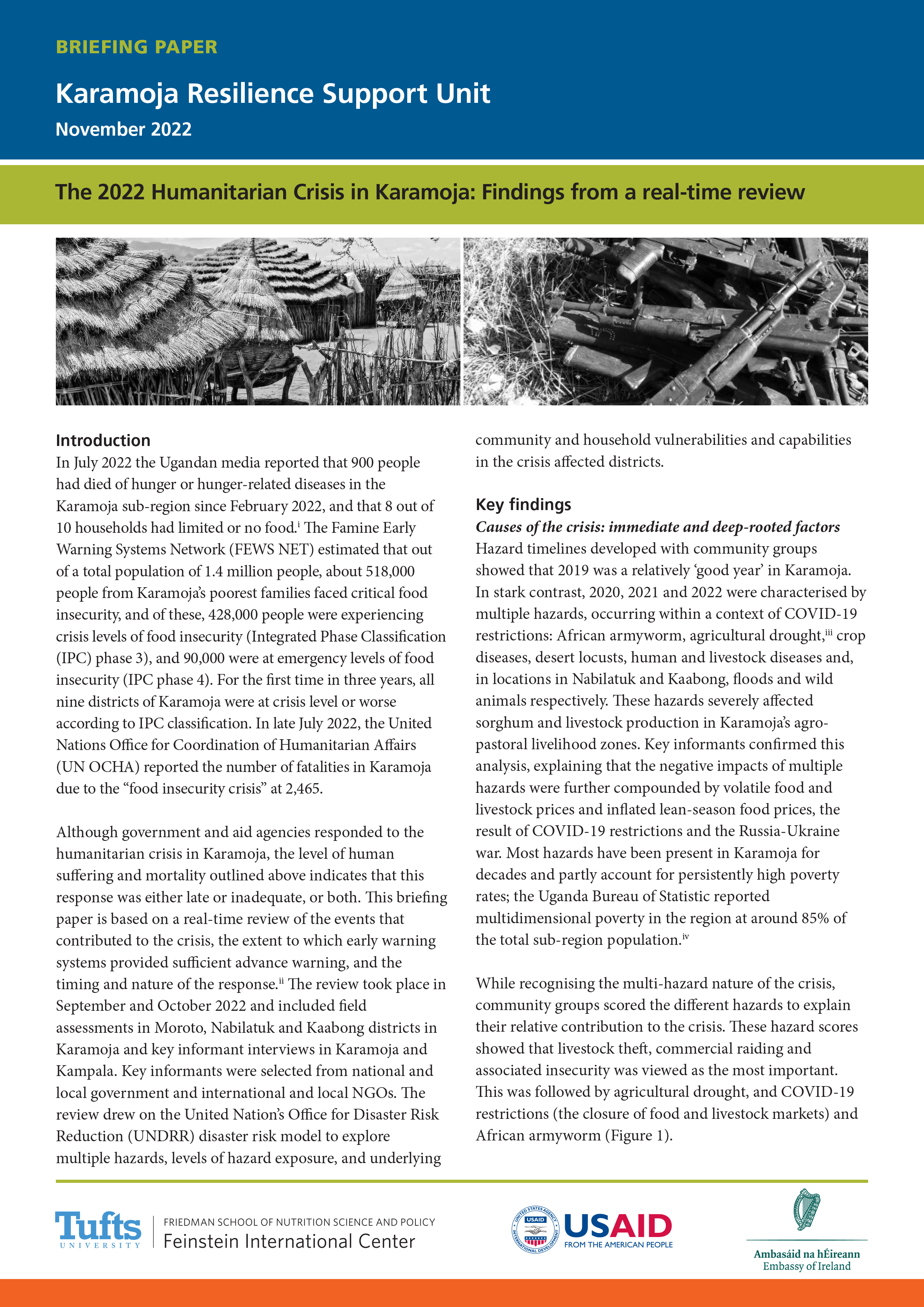
The 2022 Humanitarian Crisis in Karamoja: Findings from a real-time review
In July 2022 the Ugandan media reported that 900 people had died of hunger or hunger-related diseases in the Karamoja sub-region since February 2022, and that 8 out of 10 households had limited or no food.i